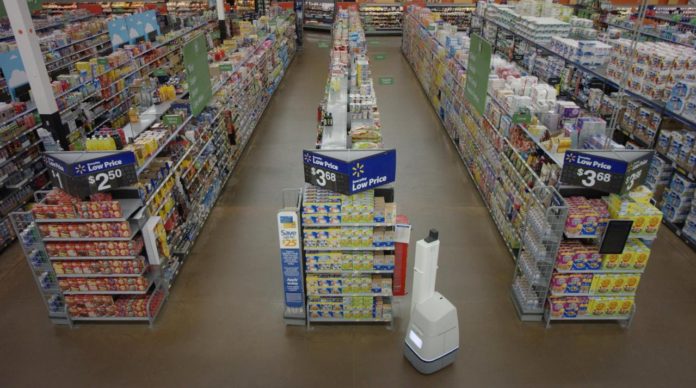Walmart is undoubtedly the biggest retailer on the planet. But, it’s not resting on its laurels. It is adopting technology in different aspects of its business. And now it is adding Walmart robots to its workforce.
How do Walmart Robots Work?
The robots stand just 2 ft tall and comes equipped with cameras and tower. Walmart is using the robots to accomplish heavily manual and repetitive task of scanning the shelves for items. The robots use cameras and the extensible tower containing sensors to scan the shelves. Human workers instruct the robots to check the shelves in an aisle. The robots identify which items are out of stock or about to and need replenishment and what is the priority. These robots also identify the mislabeled items, the ones without any labels, misplaced items, and incorrect prices. The robots then pass on this data for further processing, which involves replenishing items and fixing corrected or missing labels.
Walmart Robots: Faster, More Accurate, and More Efficient
All these tasks are repetitive and boring for human employees. Because of this, not only are human workers inefficient at these tasks but are also error-prone. Jeremy King, CTO of Walmart, said these robots are 50% more productive than human employees, three times faster, and have far better scanning accuracy. Amidst multiple tasks, human employees can only scan shelves on an average two times a week. On the other hand, robots can do the scanning multiple times in a day. Clearly, it makes good business sense for Walmart to have robots. Thus, human workers can devote their time to other, more critical and exciting tasks that they are more productive at. This, in a way, also improves employees’ job satisfaction.
Faster and more accurate scanning results in quick replenishment of items on shelves. Consequently, it means fewer missed sales due to unavailability of items. Further, accurate labels and prices result in happier customers and better sales.
Bossa Nova Robotics, a California-based company, is supplying these robots to Walmart.
Walmart has said that introducing robotic workers are not going to replace any of its human employees. However, that’s easier said than practiced. Robots invariably do replace a certain amount of work. Still, this move from Walmart and not laying off any employee is praiseworthy. This is because it is not only offloading error-prone, manual work from humans but also utilizing humans for the work which they like and can excel at. And ultimately, all this makes customer shopping experience better.


















